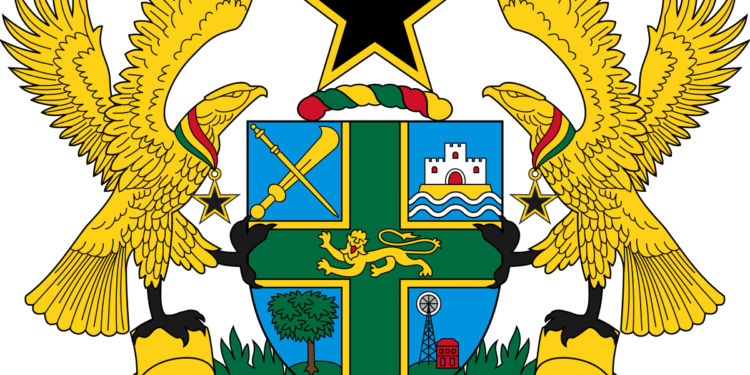In the stirring call of France’s revolutionary anthem La Marseillaise, citizens are “called to arms” and urged to “form your battalions!” to defend the nation. A similar spirit of resistance echoes in Le Chant des Partisans, the anthem of the French Resistance during World War II, where civilians were mobilised to fight against occupation, fully aware of the life-or-death stakes. These historical precedents illustrate moments when ordinary people became frontline defenders in times of existential threat. Today, as Ghana faces the creeping threat of extremist violence from the Sahel, the question arises: Should Ghana consider arming its citizens as part of a national counter-terrorism strategy?
A Shifting Threat Landscape
Ghana sits on the cusp of an increasingly volatile region. Burkina Faso, its northern neighbour, has in recent years become a hotspot of jihadist insurgency, with extremist groups linked to al-Qaeda and the Islamic State operating with impunity across large swathes of its territory. As Burkina Faso’s state institutions weaken, there is growing concern that the violence will trickle into Ghana’s northern regions, as it has in Togo and Benin.
Ghana has thus far avoided large-scale terrorist attacks on its soil. However, reports of recruitment and propaganda activities by extremist elements in border communities signal a shifting threat environment. Security experts warn that Ghana must act preemptively or risk becoming the next frontline.
The Argument for Civilian Armament
In such contexts, proponents argue, arming citizens can bolster local self-defence and deterrence, particularly in remote areas where state security presence is limited. Community-based security initiatives, such as vigilante groups or local militias, have been deployed in various forms across Africa.
In Nigeria, for example, the Civilian Joint Task Force (CJTF) was instrumental in resisting Boko Haram in the northeast. Similarly, in Burkina Faso, the Volontaires pour la Défense de la Patrie (VDP) were recruited to support the military in rural defence. These models suggest that local populations, when trained and armed, can offer critical support to overstretched security forces.
The Risks of Arming the Population
Yet, these models also expose significant risks. Civilian armament without stringent oversight can lead to:
- Weapon proliferation: Guns can be diverted to criminal networks or insurgents.
- Abuse of power: Poorly trained or unregulated groups may violate human rights or exacerbate local conflicts.
- State authority erosion: Armed civilian groups may evolve into parallel power structures, undermining national cohesion.
- Ethnic and communal tensions: In diverse societies like Ghana, armed mobilisation could fuel inter-communal violence, particularly in politically or ethnically sensitive regions. This is particularly concerning as the Northern part of the country has seen chieftaincy and ethnic disagreements over the years. Arming civilians could exacerbate the problem.
In Burkina Faso, despite the operational gains of the VDPs, the lack of effective training, oversight, and integration with formal security structures has led to reports of abuses and unintended consequences, including reprisal attacks and community displacement.
Alternative Paths to Resilience
Rather than widespread armament, Ghana can pursue other strategies that draw from the spirit of civic mobilization without the inherent risks of militarising the populace:
- Strengthen community-based intelligence networks: Encourage trusted local actors—chiefs, clergy, teachers, and youth leaders—to form early warning cells that liaise with law enforcement.
- Build civil-defence corps focused on surveillance, reporting, and emergency response: Rather than issuing firearms, equip them with communication tools, training, and protective gear.
- Promote civic education and counter-narratives: Investment in public awareness campaigns, particularly in border regions, can inoculate communities against extremist propaganda.
- Improve border and rural security infrastructure: Deploy more mobile security units, invest in surveillance technology, and increase state visibility in vulnerable areas.
- Enhance regional cooperation: Cross-border intelligence sharing with Burkina Faso, Togo, and Côte d’Ivoire is essential to track the movement of fighters and intercept recruitment pipelines.
Policy Recommendations
If Ghana is to consider any form of citizen-based security support, it must:
– Establish a clear legal and regulatory framework with oversight mechanisms.
– Ensure training is comprehensive, covering not only firearms but also human rights and conflict sensitivity.
– Prioritise non-lethal community defence models before escalating to armed options.
– Include mental health support and reintegration plans for communities under stress.
Conclusion
La Marseillaise and Le Chant des Partisans capture the noble ideal of a united people resisting domination. But history also teaches us the dangers of uncontrolled armed resistance. For Ghana, the answer to growing insecurity may not lie in arming its citizens, but in empowering them through vigilance, resilience, and partnership. Rather than creating battalions of armed civilians, Ghana must build communities that are informed, prepared, and unified in the face of extremist threats.
Perhaps, one other area that has not been considered by security chiefs is collaboration with intelligence and security organisations such as CISA. CISA has significant experience and is staffed by academics, former intelligence and security operatives, diplomats and former government advisors with significant local and international experience. Working closely with such organisations would provide guidance and support for effectively dealing with the challenges of terrorism and the development of counter terrorism strategies.
References:
– International Crisis Group. (2023). Winning Hearts and Minds in the Sahel.
– ISS Africa. (2024). Violent Extremism in Coastal West Africa.
– UNODC. (2022). Weapon Proliferation and Armed Groups in West Africa.
– ACLED Data. (2023). Political Violence and Extremism in Burkina Faso. – France 24. (2020). Remembering the Chant des Partisans: France’s Anthem of Resistance.






























